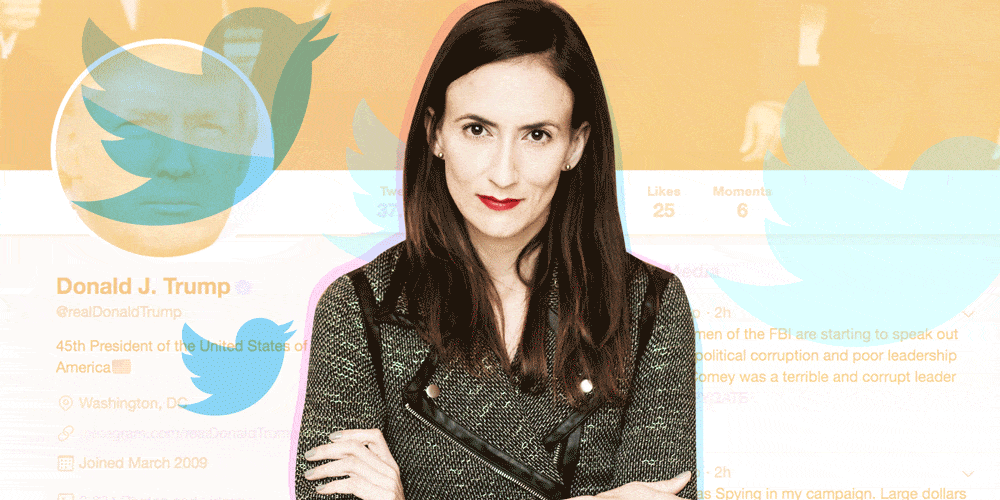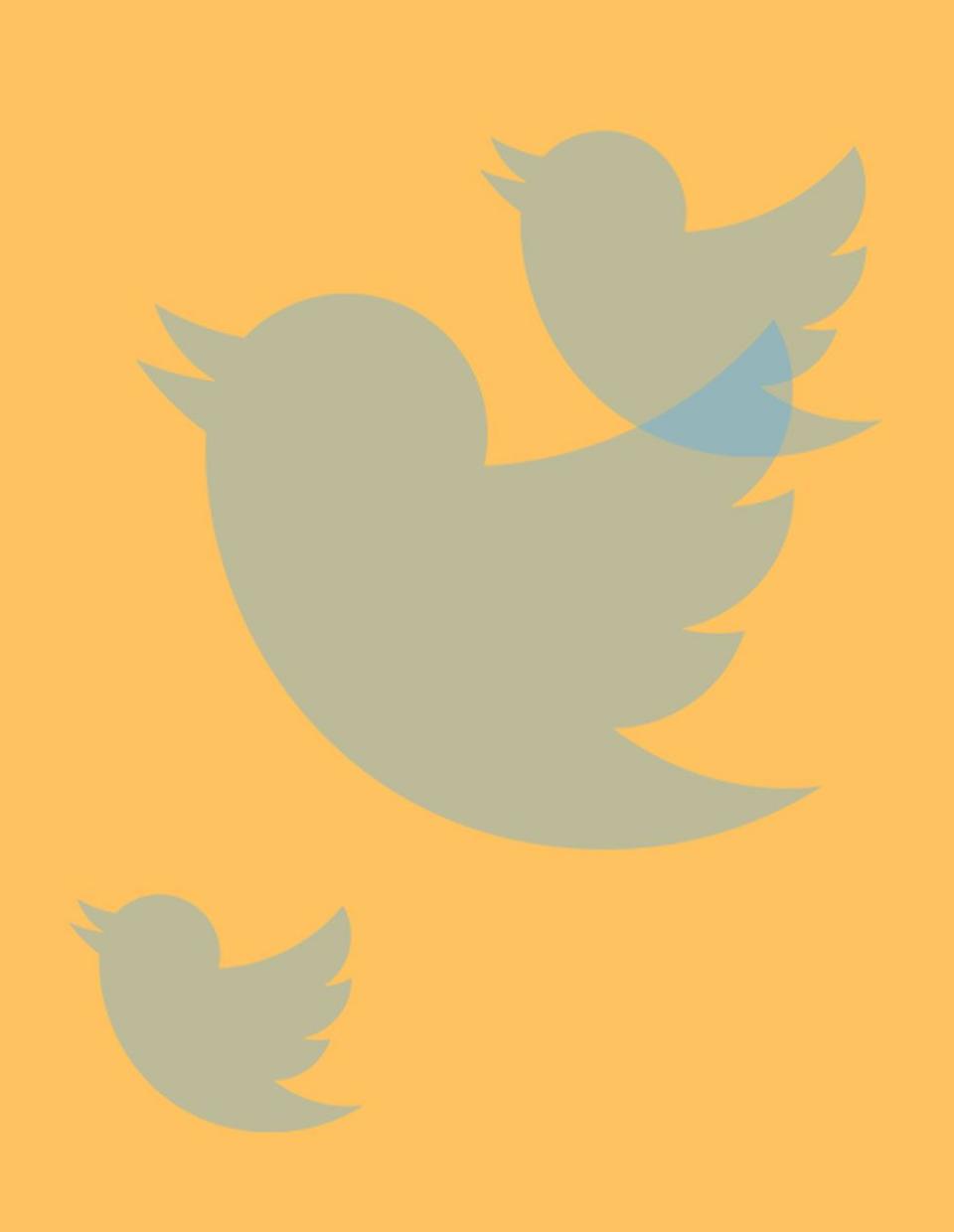I Sued Trump and Won

Last summer, Rebecca Pilar Buckwalter-Poza and six other plaintiffs filed suit against President Donald Trump for blocking them on Twitter. Yesterday, a federal judge ruled that Trump's behavior was not consistent with the First Amendment, and that he cannot block followers on the basis of their viewpoints. Here, Rebecca shares her story.
I thought it was some sort of Twitter error. I stopped getting alerts for Trump's tweets, and when other people were commenting on them, I would see all these gray boxes in my feed. I didn't realize what was happening immediately. My feed would often say, "This tweet is unavailable," but that happens when tweets are deleted. It happens for a number of reasons!
I'd never had the experience of being blocked before, so it didn't even occur to me that the president of the United States had blocked me.
Last June, Trump tweeted, "Sorry folks, but if I would have relied on the Fake News of CNN, NBC, ABC, CBS, washpost or nytimes, I would have had ZERO chance winning WH." I just retweeted it and put a comment above: "To be fair, you didn't win the White House. Russia won it for you." And so he blocked me.
To be fair you didn't win the WH: Russia won it for you. pic.twitter.com/iPUXKopd9B
- RPBP (@rpbp) June 6, 2017
It felt so surreal. It's really startling to think that the president of the United States is taking the time to individually block people. For one, you'd think he would be busy doing other things. And from the legal perspective: It was unbelievable to me that the leader of the U.S. would be suppressing speech and blocking voices.
I'm trained as a lawyer, and I worked on two federal appellate courts myself. My family came to this country because of the principles that I want to uphold and advance in my work as a lawyer, and now as a journalist for the Daily Kos. It just didn't seem like something that could be happening here.

The Knight First Amendment Institute reached out to me to say they were filing suit against Trump and wanted to see if I wanted to join the case. I talked it through with friends and thought about the hate calls and messages which might follow (and did follow), but I decided I did want this. I'm a big legal nerd, and I believe in the values we were fighting for with this lawsuit. It's a lawyer's dream to actually push for constitutional principles in such an incredible way.
We filed in July 2017. It was the Knight Institute and six of us plaintiffs, and we are a very diverse crowd. We are a journalist, a cop, a doctor, a former professional athlete, a medium, a musician, and a professor. It sounds like the beginning of a joke: This crowd walks into a court room and sues the president. What happens next?!
There was a hearing on March 8, 2018. The department of justice conceded that this was viewpoint discrimination, that we had been blocked on the basis of our political views. Judge Naomi Reice Buchwald heard our arguments and a little over two months later, she issued her ruling that Trump's Twitter feed is a public forum, and he can't block us from a public forum because of our viewpoints. She had this great line in her opinion: "as no government official - including the President - is above the law, and all government officials are presumed to follow the law as has been declared."
I now work as the Judicial Affairs Editor at the Daily Kos, and I work remotely. I was on my girlfriend's couch yesterday when I got this email in my inbox and it just said, "We won." It's a cliche, but time sort of froze. It was such an enormous victory for us, for journalists, for everyone. I will remember it for the rest of my life.
What happens with a declaratory judgment, like the kind the judge issued, is that Trump is expected to comply. It was such an unambiguous result through a federal court, but he could appeal.
This case applies to more than Trump's Twitter account, more than Twitter. Public officials are increasingly using social-media platforms as a means of engaging with their constituents, and it's a critical part of their job. It was essential that this principle be established, because it's no different from shutting people out of a town hall meeting based on their viewpoint. The Constitution does not permit that kind of act.
Trump blocking me is synecdoche. He's trying to block out every dissenting person, any person with a contrary view, anyone who is critical of him. If you look at his replies, you might think there is less criticism than there is. You might think that he has more support than he does. And every part of that is troubling. My hope is that this case has greater implications for all my fellow journalists and for all citizens who have a different view. Trump cannot shut you out because you don't agree with him.
Follow Rebecca on Twitter.
You Might Also Like

